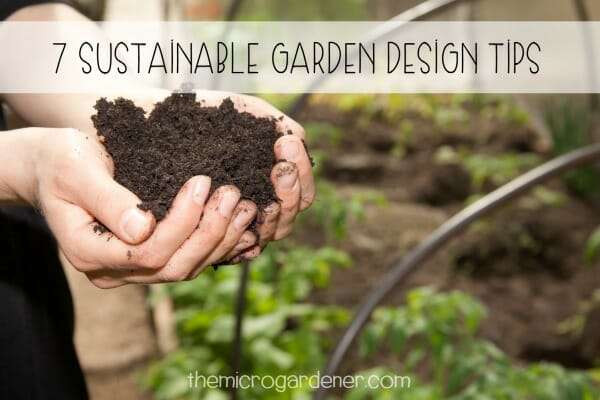Introduction
Gardening is not only a rewarding hobby but also an opportunity to contribute to a healthier environment. By adopting sustainable gardening practices, you can create a beautiful garden while minimizing negative impacts on the ecosystem. This blog post will provide you with valuable tips and techniques to help you establish an environmentally friendly garden that thrives in harmony with nature.
1. Choose Native Plants
One of the best ways to create an environmentally friendly garden is by choosing native plants. These plants are adapted to the local climate and soil conditions, which means they require less water, fertilizer, and pesticides. Native plants also provide habitat for local wildlife, promoting biodiversity in your garden.
2. Practice Water Conservation
Water is a precious resource, so it’s important to conserve it in your garden. Install a rainwater harvesting system to collect rainwater for irrigation. Use mulch to retain moisture in the soil and reduce evaporation. Group plants with similar water needs together, so you can water them efficiently. Consider using drip irrigation systems, which deliver water directly to the plant’s roots, minimizing waste.
3. Compost and Mulch
Composting is a great way to reduce waste and improve soil health. Collect kitchen scraps, yard waste, and fallen leaves to create nutrient-rich compost. Use this compost to enrich your garden soil, reducing the need for synthetic fertilizers. Additionally, apply mulch around your plants to suppress weeds, retain moisture, and regulate soil temperature.
4. Avoid Chemical Pesticides
Chemical pesticides can harm beneficial insects, birds, and other wildlife in your garden. Instead, opt for natural pest control methods. Encourage beneficial insects like ladybugs and lacewings, which feed on garden pests. Plant companion plants that repel pests, such as marigolds to deter aphids. Use organic pest control products, like neem oil or insecticidal soap, when necessary.
5. Practice Integrated Pest Management
Integrated Pest Management (IPM) is a holistic approach to pest control that minimizes the use of chemicals. Monitor your garden regularly for signs of pests and diseases. Identify the problem and choose the most appropriate control method. This could involve handpicking pests, using physical barriers, or introducing natural predators. IPM focuses on long-term prevention rather than relying solely on pesticides.
6. Attract Pollinators
Summary
In this blog post, we will explore various sustainable gardening practices that can be easily implemented in your own garden. These practices include:
- Choosing native plants
- Conserving water
- Using organic fertilizers and pesticides
- Composting
- Attracting beneficial insects and wildlife
- Implementing efficient irrigation systems

By incorporating these tips into your gardening routine, you can reduce your environmental footprint, conserve resources, and create a thrivi navigate to this web-site ng ecosystem that supports biodiversity. Let’s dive into the details and discover how you can make your garden a sustainable haven.
- Q: What is sustainable gardening?
- A: Sustainable gardening refers to the practice of creating and maintaining a garden in an environmentally friendly and resource-efficient manner.
- Q: Why is sustainable gardening important?
- A: Sustainable gardening helps conserve natural resources, reduces waste, supports biodiversity, and promotes a healthier ecosystem.
- Q: How can I conserve water in my garden?
- A: You can conserve water by using mulch to retain moisture, watering plants in the early morning or late evening to minimize evaporation, and installing a drip irrigation system.
- Q: What are some eco-friendly pest control methods?
- A: You can use natural pest control methods such as companion planting, introducing beneficial insects, using organic pesticides, and practicing proper garden hygiene.
- Q: How can I reduce waste in my garden?
- A: You can reduce waste by composting kitchen scraps and garden waste, reusing containers and materials, and avoiding the use of single-use plastics.
- Q: What are some native plant options for a sustainable garden?
- A: Some native plant options include milkweed, coneflowers, black-eyed Susans, native grasses, and wildflowers. These plants are adapted to the local climate and require less water and maintenance.
- Q: How can I attract pollinators to my garden?
- A: You can attract pollinators by planting a variety of flowers that provide nectar and pollen, creating a water source, avoiding the use of pesticides, and providing nesting sites.
- Q: Is organic gardening considered sustainable?
- A: Yes, organic gardening is considered sustainable as it avoids the use of synthetic fertilizers and pesticides, promotes soil health, and encourages biodiversity.

Welcome to my website! I’m Mitchell McCall, a professional Outdoor Space Designer with a passion for creating beautiful and sustainable living environments. With years of experience in the industry, I have developed a deep understanding of the importance of outdoor spaces in enhancing the overall appeal and functionality of a home.
